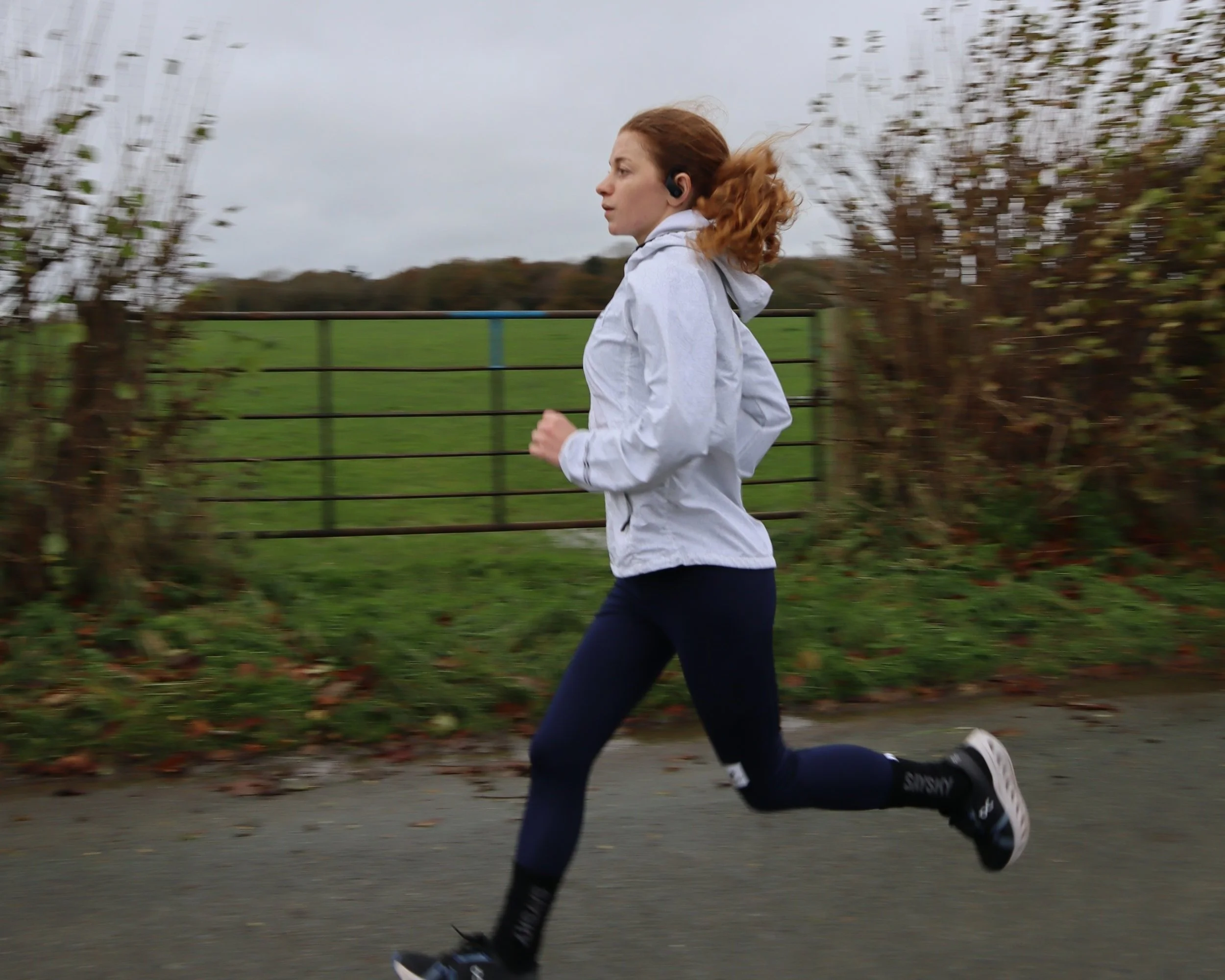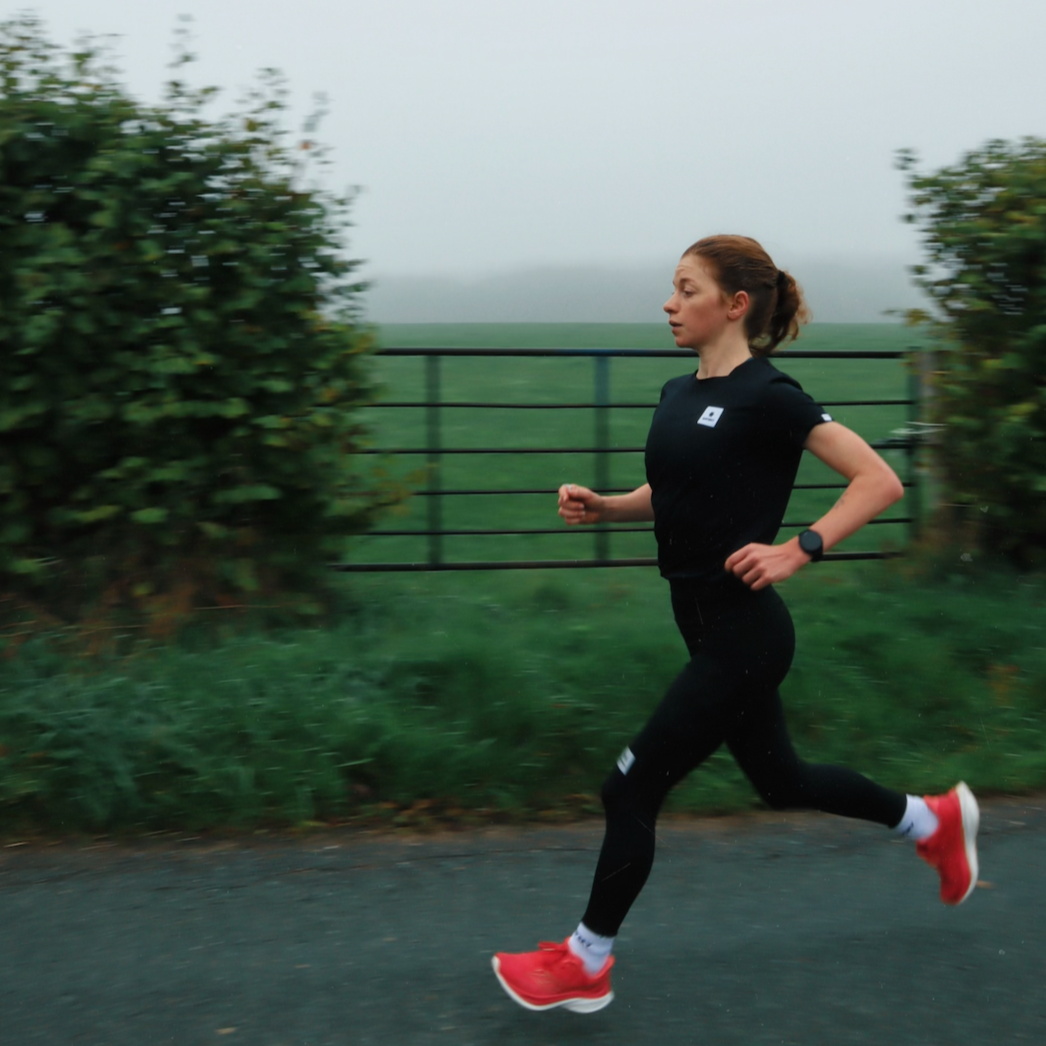How runners can support their immune system - without cutting back on miles
Running is known to boost your immune health, but high-volume or intense training can have the opposite effect, leaving you more vulnerable to illness.
Here's how to support your immune system as a runner, so that you can keep illnesses at bay and stay consistent with your training.
How does running affect your immune system?
While regular, moderate exercise is proven to support immune health, high-intensity or high-volume training like marathon prep can temporarily suppress it. But why is that?
Physical stress: Long runs, speed sessions and high weekly mileage push your body to adapt. But during that adaptation process, your body sees hard training as a kind of stressor. Cortisol (a stress hormone) levels rise, which can reduce the effectiveness of immune cells in the short term.
Increased inflammation: Running causes small amounts of muscle damage, which your body repairs through inflammation. That’s totally normal, but if you’re not recovering properly, chronic low-level inflammation can wear down your immune response.
Depleted energy stores: Your immune system needs fuel to function. If you’re training hard and not fuelling adequatly, you may not have enough energy left over to support immune repair.
Open window theory: After intense exercise—especially sessions over 90 minutes—there’s a period (roughly 3–24 hours) where your immune defences are lowered. During this “open window,” you’re more susceptible to viruses, particularly if you’re around crowds or not refuelling well.
Marathon-specific demands: When training for a marathon, most runners increase volume rapidly, often under time pressure. This can lead to under-recovery, sleep disruption and increased mental stress - all of which take a toll on immune health.
How to support your immune system as a runner
Getting ill, especially when you’re in the thick of a training block for a goal race, is something you want to avoid at all costs, so that you can continue running consistently. Here are simple habits to help keep your immune system strong and resilient.
1. Eat for immunity, not just for energy
If you’re running often, you’re likely thinking about carbs, calories and protein. But immune health relies on a much broader mix of nutrients.
Prioritise Vitamin C: Found in oranges, kiwis, red peppers, Vitamin C helps your body fight off infection and recover faster.
Aim for variety in fruit and veg: Try to go beyond your usual few. Think leafy greens, carrots, berries and tomatoes. The more colours on your plate, the better.
Include zinc and selenium-rich foods: These minerals play a big role in immune function and are found in seeds, nuts, whole grains and fish like mackerel and sardines.
Get enough protein: Your immune cells rely on amino acids to work properly. Lean meats, eggs, lentils and Greek yoghurt are solid options.
Stay hydrated: Dehydration, especially after longer or sweatier runs, can slow immune responses. Water, herbal tea and soups all count.
2. Recovery isn’t optional—It’s essential
Training stresses the body - that’s how we get stronger. But if you don’t recover well, you can end up run down and more likely to catch something.
Stick to a regular sleep schedule: Aim for 7–9 hours, and try to wind down properly before bed—no doomscrolling just before lights out.
Don’t ignore signs of overtraining: If you feel constantly tired, sore, or moody, your immune system could be under strain. Back off for a few days and see how your body responds.
3. Consider a Vitamin C supplement
As a runner who’s doing anything to avoid getting sick, I rely on Pillar UItra Immune C, especially from October to March to help me dodge the Winter illnesses. I started taking this supplement religiously in October 2024 and for the very first time, I stayed illness-free all Winter, didn’t even catch a cold! You best believe I am keeping it in my daily routine.
Pillar Performance Ultra Immune C is a high-potency immune support supplement formulated specifically for athletes and endurance trainers, including runners facing intense or high-volume training blocks.
It delivers a clinically effective combination of vitamin C (1000 mg), vitamin D3 (1000 IU), and zinc (15 mg)—nutrients shown to support immune defence, reduce inflammation, and help the body recover from physical stress.
For runners, this means potential protection against the dip in immune function that often follows long runs or race prep, especially during peak training or colder months.
Read my unsponsored, honest Pillar UItra Immune C review.






